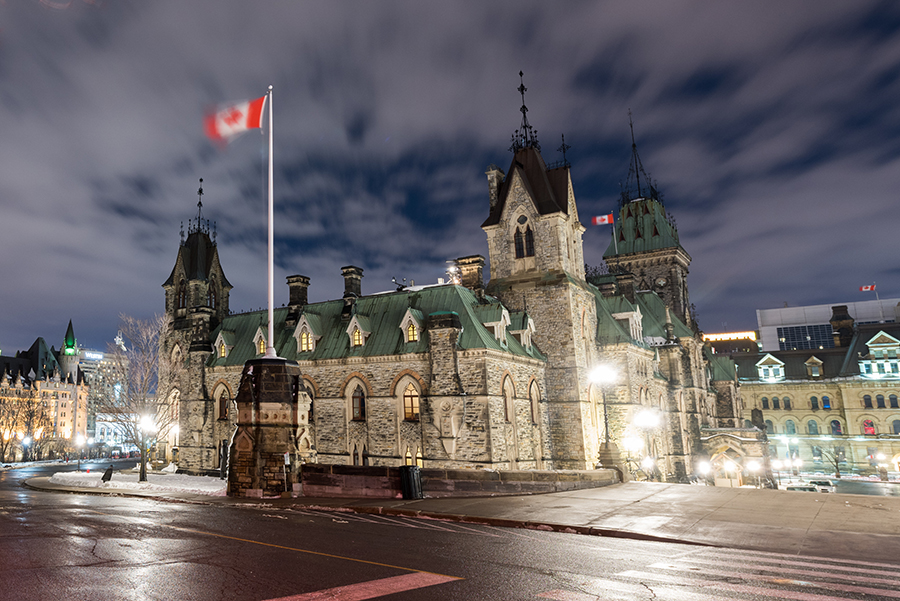What are the impacts of political censorship on Instagram?
Léa Beaulieu-Kratchanov,
Local Journalism Initiative Reporter
For two months, Meta has blocked the recommendation of “political” content by default on its Instagram and Threads platforms. This latest update is part of a continuum of restriction of sensitive content on the tech giant’s platforms, which could have a greater impact among young people.
Through a new feature, Meta restricts content it classifies as “political” on its Instagram and Threads platforms. This content is de facto excluded from the recommendations that appear in the news feed, videos, the explore page as well as suggested accounts.
“If you decide to follow accounts that post political content, we don’t want to come between you and their messages,” read a statement. “But we also don’t want to proactively recommend political content from accounts you don’t follow,” it says.
This new feature was applied by default to all Instagram and Threads accounts, starting in February. To avoid this, users must modify their settings themselves.
“It shocks me,” reacts Emmanuelle Parent, doctoral student in communications and co-founder of the Centre for Online Emotional Intelligence (CIEL). “They are aware that when you put a feature by default, not everyone will realize it. ”
In addition to the press release announcing the measure, the company did not inform its users, she deplores.
It is also through other users, notably political and social organizations and groups, that many learned of the news, often weeks after its entry into force.
“It’s very insidious,” thinks Emmanuelle Parent.
She reports that in secondary schools where CIEL gives digital self-defense workshops, several students are still unaware that Meta now blocks the broadcast of news media on its platforms. Very likely, then, that an even larger proportion have not heard of the new feature targeting political content.
Meta did not respond to questions or interview requests from Pivot.
Political or not?
In Instagram’s settings, it is indicated that the targeted “political” content is “likely to mention governments, elections, or social issues that affect a group of people or society in general.”
For Emmanuelle Parent, this is a very broad definition that could apply to several issues, well beyond partisan politics. “Are we also talking about publications that are anti-racist or feminist?” she asks. “We do not know. ”
She deplores the company’s lack of transparency regarding the control it exercises over the content available. “Meta has all the power over its platforms, over the algorithms. It’s super opaque, we don’t know how it happens. ”
Without knowing its scope, we can only speculate as to the impacts of such a restriction on the groups and organizations that use the platform to join and mobilize for social justice. Emmanuelle Parent, for example, highlights the questions raised by several experts regarding the potential censorship of pro-Palestine content on the company’s platforms.
“Social networks are often used as spaces for mobilization by groups who do not feel represented, or who are not at all represented in places of power,” she notes. “This is why we love social networks despite everything, despite all their opacity, because they allow this space for meetings, for mobilizing and taking action which have significant impacts. ”
Young people, for whom Instagram is a favorite platform and who are at the heart of several social struggles, could be particularly affected.
“It’s a real shame if we take away a space for young people to mobilize,” denounces Emmanuelle Parent. Although those who are already more engaged will be more likely to deactivate the feature, it could still prevent them from joining other young people who might have discovered new ideas and groups.
Profitable strategy
That Meta wants to tighten the screws on political content does not surprise Jean-Hugues Roy, professor at the Media School of the University of Quebec in Montreal. He recalls that as of 2021, the company had already indicated that it was reducing the visibility of political content on its platforms.
“It just seems to me to be the continuation [of a tendency to] disengage more and more, transforming itself into a simple entertainment network,” explains the researcher. “[Meta] ceases to be a social network, little by little it breaks its initial promise of being a space for exchange between humans. ”
“We must dare to be creative and have imagination in what we want to demand from platforms. ”
According to Jean-Hugues Roy, this type of strategy allows Meta to avoid content management effort, but also to favor advertising content. “97% of Meta’s turnover is the sale of advertising,” he emphasizes. “We don’t want to scare advertisers. ”
“We put the lid on content that is too shocking, but politically important. ”
According to Emmanuelle Parent, it is essential to make young people aware of the power of platforms and their financial objectives, remembering that in the eyes of these companies, well-being is not a priority.
Government passivity
For Jean-Hugues Roy, governments are being too “docile” in the face of technology giants and are not doing enough to protect the population.
“States no longer play their role of making decisions that are in the interest of the population. They are no longer capable of curbing these multinationals,” he thinks. It highlights the apparent capitulation of the federal government since the adoption of Bill C-18 on online news and the censorship of this content by Meta.
“We have to dare to be creative and have imagination in what we want to demand from the platforms,” agrees Emmanuelle Parent. She believes that these requests must at least call for more transparency regarding the impacts of updates.
Léa Beaulieu-Kratchanov,
Local Journalism Initiative Reporter
Pivot






